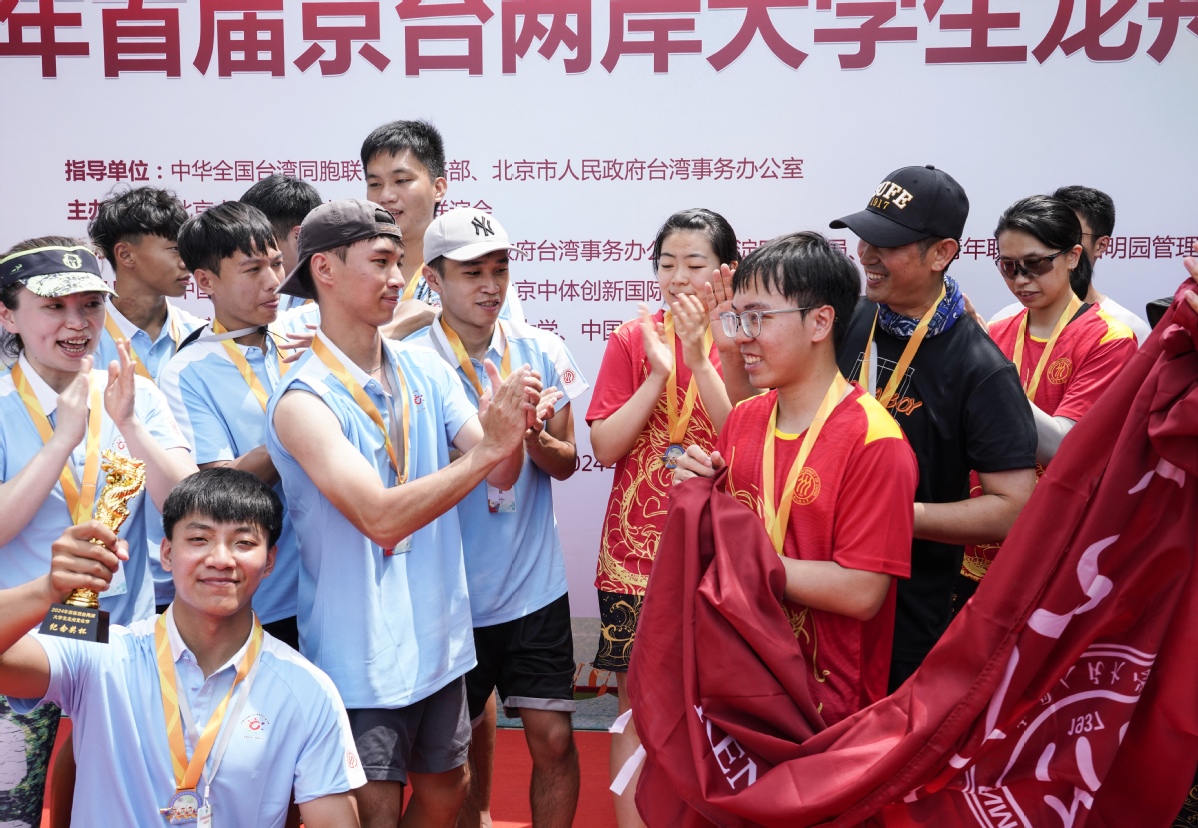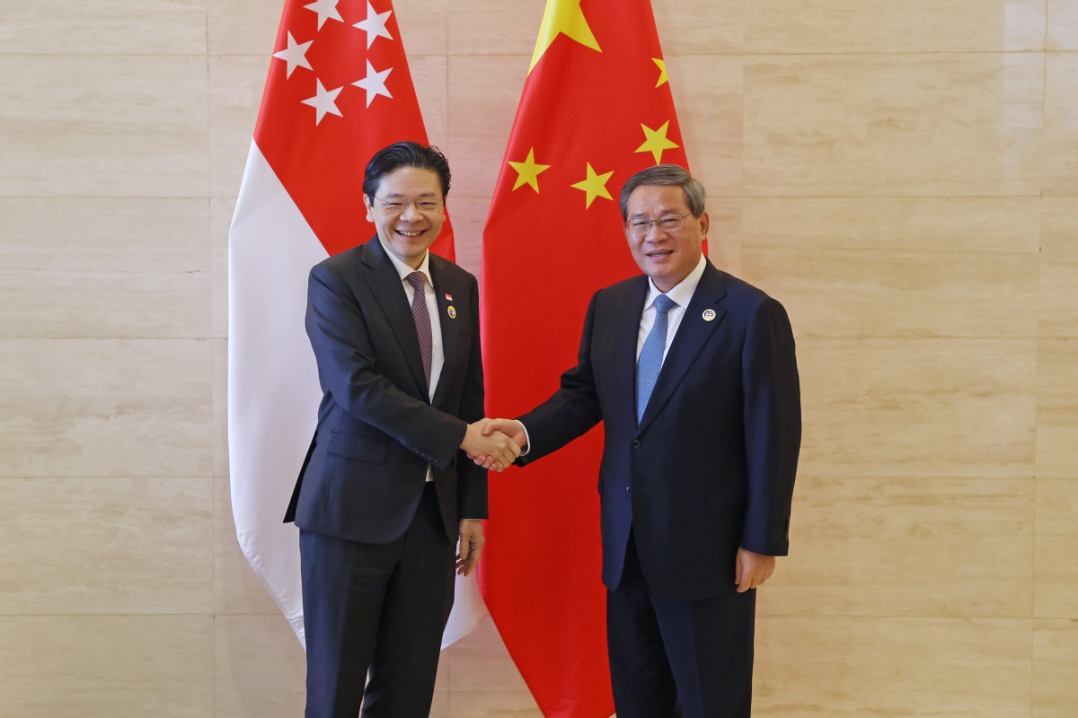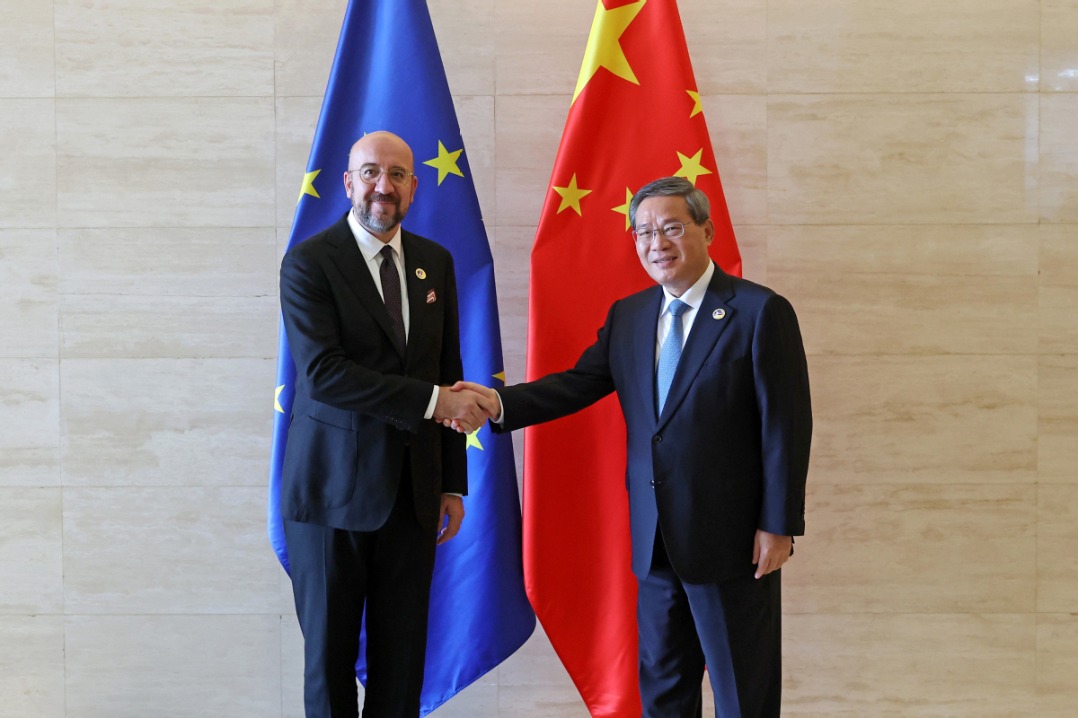'Race of friendship' builds deeper cross-Strait bonds


In a spectacular show of cross-Strait camaraderie, university students from the Chinese mainland and Taiwan island participated in the first-ever dragon boat competition organized in Beijing for students from both sides of the Taiwan Strait.
The "race of friendship", as it was called by many of the competition's enthusiastic participants, was held at the Old Summer Palace on Friday as part of the weeklong 21st Youth Summer Camp, which started on Wednesday and runs through Tuesday.
The camp is hosting around 1,500 students from Taiwan, a large number of them first-time visitors to the mainland, who will tour historical landmarks and top university campuses as well as experience traditional culture.
The activities, spread across 29 provincial regions, aim to enhance the students' understanding of the nation's rich history and culture, and promote exchanges and interactions between young people from both sides of the Strait.
Tsai Bing-yang, a physical education major from Taiwan's Kaohsiung Normal University, said he enjoys rowing and signed up for the camp activities in Beijing without hesitation when he heard there would be a dragon boat race.
"There are not only academic exchanges with my mainland peers during this visit, but also athletic contests, which is helping me better understand the differences," said Tsai, a first-time traveler to the mainland.
The visiting students toured several scenic spots in Beijing and participated in multiple cultural activities, such as watching a Peking Opera performance and painting opera masks.
Lin Ting-yu, a freshman from Kaohsiung Normal University, said he wanted to take home the mask he painted at the camp, as it will be a "fond reminder of the trip".
"Honestly, we don't have much exposure to traditional opera culture in Taiwan. This is such a unique experience," Lin said.
Tsai Ching-ju, a dentistry student from Taiwan's Medical University, said it was her first time watching a Peking Opera performance.
"Everything that I've only read in textbooks suddenly came alive. The red mask I painted is of Guan Yu (a legendary Chinese hero who lived about 2,000 years ago), and it represents righteousness," she said.
Bian Yu-chun, another visiting student who was part of the group that toured Palace Museum, said he bought a pocket watch with the North Star engraved on it from the souvenir shop.
"I've been to the Taipei Palace Museum. It's way smaller, with different cultural relics on display. However, I sense a connection," Bian said, adding that this was his first trip to Beijing.
Tsai Jin-hsien, dean of the Office of General Affairs of Kaohsiung Normal University, who is leading a group of around 30 students, quoted an old Chinese saying to summarise their mainland visit.
"It is better to travel 10,000 miles than to read 10,000 books," he said. "I had only seen the Forbidden City in films and television programs. To be actually here is totally different. This journey is unforgettably fascinating for me and my students. I realize how vast our motherland is."
He said that in the past few years, cross-Strait visits were inconvenient because of the COVID-19 pandemic, but he now looks forward to "more communication and exchange opportunities between university students on the two sides of the Strait".
The Beijing itinerary of the camp includes visits to the Badaling section of the Great Wall, the National Aquatics Center, also called the Water Cube, the National Stadium, also known as the Bird's Nest, the Shougang Ski Jumping Platform, Peking University and the Beijing Film Academy.
Su Wei, vice-chairman of the Beijing Federation of Taiwan Compatriots, which organized the camp activities in the Chinese capital, said the federation serves as a "home" for compatriots from Taiwan, providing opportunities for young people from Taiwan to study, find jobs or start businesses on the mainland.
Su said he hopes that the camp will help young people gain a deeper understanding of the changes and achievements in the nation's cultural history as well as in its economic and social development, which in turn will allow them to foster deeper cross-Strait bonds.
The summer camp on the mainland has been an annual event since 2004 and has attracted over 20,000 participants from Taiwan to date, making it one of the key programs in cross-Strait youth exchanges.
- PLA Navy fleet conducts realistic training in East China Sea
- China's first reusable satellite returns to Earth with payloads
- Policies set to boost graduate job market in Wuhan
- Feature: Service station on Yangtze River achieves carbon neutrality
- Beijing launches supporting services for elderly aged 80 and above
- Retrial begins for high-profile child trafficking case


































